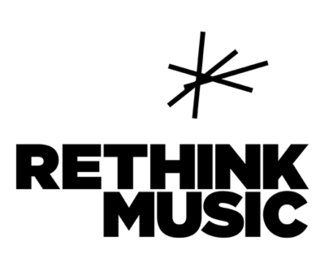Ralph JACCODINE: From High School Promoter to Berklee Professor – A Journey Through Music’s Universal Language
Thursday, October 17, 2024

https://lnkd.in/efE9wSr3


Taylor Swift is arguably the most famous person in the world – a pop star the likes of whom many of us haven’t seen in our lifetimes. Especially over the past year with the release of her latest album Midnights and her record-breaking The Eras Tour, it’s not crazy to wonder if what we are witnessing right now is somewhat analogous to the Beatlemania of the 1960s. So what exactly is the phenomenon of Taylor Swift? Why has she risen to the heights that she has and captivated so many people like few other artists have before her? Is this truly a special pop culture moment, or is it perhaps being overstated? Music industry veteran Ralph Jaccodine joins the podcast.
This show is part of the Spreaker Prime Network, if you are interested in advertising on this podcast, contact us at https://www.spreaker.com/show/5432816/advertisement
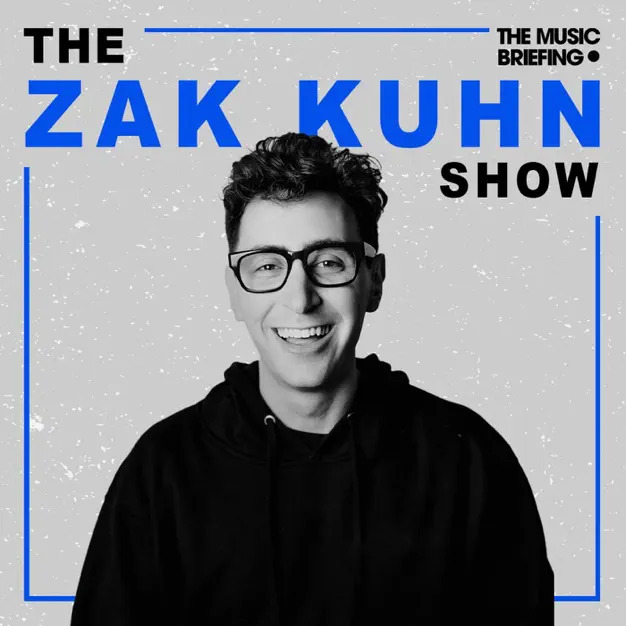
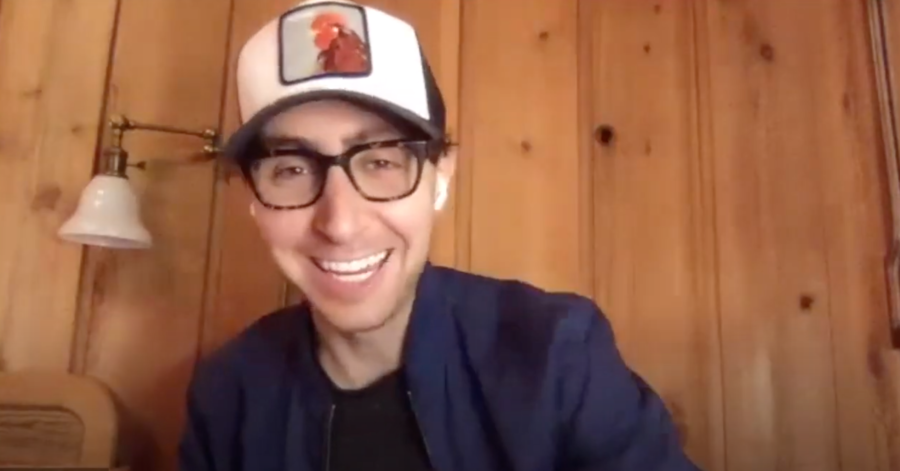

#34 Living legend Livingston Taylor LIVE @ Berklee College of Music
The Mentoring for the Modern Musician podcast, often featuring interviews with industry insiders who would never take your call, is designed to help cut the learning curve for musicians in and ever-changing music industry. Through in-depth topical discussions, the Scharff Brothers look to help musicians cultivate the skills necessary to forge a career as a creative artist. Pioneers in Virtual Artist Development, the Brothers steer each interview and conversation in an entertaining, informative, upbeat and completely original direction. In an ever-changing music industry, up to date and often cutting-edge information can make all the difference in a successful career. As the boys will tell you “You got this…We got your back.”

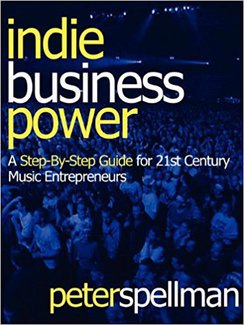
Q1. I would describe my business as:
A1: Ralph Jaccodine Management is an artist management company with an associated record label, Black Wolf Records. The company was established in 1992.
Q2: How would you describe “entrepreneurship”?
A2: I ask my Berklee students to define this and I get so many unique answers, most having elements I believe are to be true. Risky, tenacious, artistic, creative, self-motivated, self-starter, passionate, focused, driven, impatient - all adjectives I wrap together into the term ‘entrepreneurship’.
Q3: In general, which do you consider to be the absolute minimum requirements for successful entrepreneurship in terms of skills and personality traits?
A3: Absolute minimum requirements for successful entrepreneurship for skills and personality traits: successful entrepreneurship requires an ‘all in’ way of executing. Success comes to those who work harder, have the talent, vision, focus to execute a plan, and wrap that in a blanket of Karma/luck. charismatic people skills, communicator, motivator, visionary.
Q4: Did you write a business plan when you started your company?
A4: When I left the commercial real estate business I was in for a dozen years, I sat down with my friend and mentor, Mike Dreese, a successful entrepreneur who started the retail music chain Newbury Comics. Mike and I wrote ‘no assholes’ on a napkin and decided whenever possible, not to deal with assholes as we start our business. We then wrote up a simple recording contract for our first artist, Ellis Paul. It was a 50-50 deal, investment, profits and expenses are all shared equally, a simple concept. This relationship and the spirit of this contract are at the basis of a 20+ year relationship with Ellis which stands today as the keystone of my professional career.
Q5: How did you finance the startup phase of your business?
A5: I had an actual dream about starting a record label back in the early 1990’s when I was a commercial real estate broker. Later on that day I was showing Mike Dreese, CEO of Newbury Comics some retail space and told him about the dream and blurted out ” I want to start a record label and put out Ellis Paul’s first CD”. I had no experience, no right to be so bold to announce this, but I did. Mike wanted to hear Ellis’ music so I played a demo cassette of some songs and he liked the songs. Next he said, ‘I’ll be your partner, I had a label before.” Then about a week later, I got a message from a someone at a church in Lawrence, Ma. I called the number and found out that I won their church raffle of $1000. I barely remembered buying a ticket from a friend’s son, and glad I did. I got this check and put in in the bank under a “Black Wolf Records” name. I was off and running from there. Then Ellis, Mike and I put a pile of money into something called a ‘recording budget’, got a folk legend to produce Ellis’ debut CD got it played on some big radio stations, and build our company from there.
The investment of time, passion, sweat and money are equally important. Figuring out how to finance a new venture is vitally important. I was an economics major in college so I loved to study the economics of things. To understand the music business, I learned how to follow the money. How is comes in, how it goes out and how to attract attention/capital. Church raffles, partners, parents, crowdfunding are all legitimate ways to finance a start up. Having skin in the game, ie. my own money at risk, motivated me to make this career move a success.
Q6: What were some initial, unexpected challenges, problems, and development issues you had to face?
A6: Unexpected challenges were everywhere but I took everything in stride. I didn’t know any better. I believed in the power of music… nothing was going to stop me from carving out a place at the table for me and eventually my artists. The year I signed my first management client was the year I left real estate, got married and had my first (or two) kids.
Everything was new to me. The lingo, the economics, the culture. I was a quick learner because I had to be. I listened to my heart, in retrospect it was a bold, crazy career shift with risky timing. What mitigated the risk is that I had good business partners in Ellis Paul and Mike Dreese. And strong mentors like Tim Collins who was the long term manager of Aerosmith.
Q7: Are there any overall guidelines you follow to help you manage your business?
A7: Overall guidelines I follow to help manage the business: I started with the credo that music is the most important force I know. It can change lives, move mountains, motivate, heal and inspire this world of ours. Music and it’s creators are precious to me and this respect of the power and majesty of music is behind my motivation to work with artists that bring light, healing and inspiration to this planet of ours. I thought this as a kid, I believe in this more today than ever. When I stop believing in the power of music, i’ll go to law school or become a dentist.
Q8: What trends (changes on the horizon) do you see unfolding in your line of business over the next five to ten years?
A8: Changes/ trends in the next 5-10 years. The more things change with music monetization and delivery of music, the more things stay the same. The importance of a good song, finding an audience, blowing away a live audience and monetizing it all is the backbone of the artist management business. Facilitating an artist with co-creating a vision for them is exciting. Being on top of the changes to technology, legal issues, cultural shifts and all part of the realization that being plugged into the goings on of this planet is a must. Not just with popular culture and the music business but the bigger picture is always important to understand and monitor.
Q9: Do you ever barter your products, services, or assets with other companies in exchange for their products, services, or assets?
A9. There are direct and indirect ways of bartering what I do. I have ‘consulted’ with artists for years. Meeting them for a meal which I would buy, helping them, hearing their stories and them, having them fill their notebooks with ideas, plans and proposals I see fit for them. It is why I got into this business to help artists. Then when my experience grew, I was getting the meals paid for me and money exchanged. I have participated in cruises, seminars, conventions, fundraising, non-profits all using my experience and connections to help others. When I realized I have skills that can help others I realize how much of a joy it is to do so. What I get in return is satisfaction that I am helping others. This is a deep satisfaction.
Q11: Which web tools & strategies do you use regularly for improving your internet marketing? (e.g., Google Analytics, Search Engine Optimization, Twitter and other social networking tools, blogging, etc.)
A11. Internet marketing: I took a Entrepreneurial MBA course and learned that most business owners are great at working AT their business, but need to work ON their business as well.
I am constantly seeking out younger, less experienced ‘beginners’ to bring a ‘beginners mind’ to what I do. An expert has limited possibilities, when you are a beginner, there seems to be infinite possibilities. There are no rules because they don’t ‘know any better’. I like that side of the coin.
I have 2-3 college interns working for me at all times and a network of managers, students who I learn from. I read 5-10 blogs daily to seek out trends, lessons and more experience at all things internet marketing. I use social media experiments and technology in a rotating series of tests to grow the reach of my artists.
Q12: As you look back, what do you feel are the most critical concepts, skills, attitudes, and know-how you needed to get your company started and grow to where it is today?
What skills, etc. will be needed in the next five years?
A12. I am constantly learning. I gobble up information from business, sports, music, culture, education, spirituality, design blogs. I read 2-3 newspapers a day and make sure there is a flow of ‘experts’ I am learning from and being inspired by. I have always been a student successful people and I study success patterns and habits . I keep on thinking of the risk I took in thinking I could carve out a career as an artist manager. I got lucky, I was tenacious, humble and bold all at the same time. I learned how to ask for help, aggregate mentors, role models and teachers. Taking care of my mind, body and spirit will lead me to future adventures. Having the faith that I am on the right path, for the right reasons has kept me going and supports this holy crusade I am on.
Q13: Which subjects that you studied in or out of school have you found to be most helpful to you as an entrepreneur? Why?
A13. I have taken an general Entrepreneurial course at BU after graduation from college, as well as two courses at the Harvard School of Design that had to do with financing, particularly real estate financing. I have have taken independent courses in: negotiation, spirituality and writing as well. Probably the best course I have taken post-undergrad was an Entrepreneurial MBA program, designed for small business owners with experience at running their own business. I was in a class of small business owners running design company, bakers, insurance brokers, and there I was with a musician management company, way out in left field, but with similar needs and desires to work ON my company with like minded business people.
Q14: If you had to characterize your entrepreneurial life in one image, what would it be and why?
A14. Entrepreneurial life… a snapshot of my preparing dinner for two young, hungry kids, trying to be present while the phone is ringing off the hook. Saying no to the phone, feeling like I could do more for my kids, and my clients, yet letting all of this go and realize this is part of the balancing act of running my own business.
Q15: Any thoughts on how you manage to keep a balance between your personal and business lives?
A15. Balance is difficult, but essential. I carve out time for my children, for exercise, friends, family, and remain super efficient with my time. I have systems in place from hiring reliable staff to back me up, and make sure things don’t slip through the cracks. I read once that ‘if you want to get something done, give it to a busy person for they know how to get things done’. I have always had a lot on my plate professionally with managing artists, teaching at Berklee College of Music, serving on 3 Boards of Directors and being a father to two amazing kids. Time is precious. I Don’t waste time, I value my time and know every day is important, and we are not promised another day. If we get another day, I try to honor it by using the time wisely.
Q16: What would you do differently – if you could turn back the clock?
A16. Turn back the clock. I really don’t think I would do anything differently. I needed the failure, the struggle, the stress, the rejections. I needed to make mistakes and I try to always make new mistakes, not the same one repeatedly. I live my life as much as I can in the present moment, with an eye towards future adventures. I can’t turn back the clock so I don’t bother myself with this exercise. What I can change is in the now, and it will be in the future really soon.
Q17: What recommendations would you offer someone considering starting their own business?
A17. Suggestions in starting your own business. Have burning passion for what you are doing. Your reason for starting the business should have something to do with bringing light, making the world a better place to some capacity. Figure out the money side of things. How to attract money, how to use it, budget, negotiation skills, saying ‘NO’ and people skills all help.
If security is valued, you will have a tough time. If you have tenacity for what you are creating, if you are on a mission, a holy crusade, you are on your way.
Q18: Are there any overall guidelines you follow to help you manage your business?
A18. Guidelines for managing the business. I work as hard as I can for my artists… while keeping perspective and a sense of humor. I surround myself with like minded people who inspire and entertain me. Daily I realize my artists I represent are relying on me for their livelihood, their economic wherewithal. It is an immense responsibility to partner up with an artist for a co-created adventure. I always realize that it is a privilege to have a job/career in the music world. I honor this by my work.
Q19: If you could say one thing about financial management to aspiring entrepreneurs, what would it be and why?
A19. financial management. It is essential to know how money works.
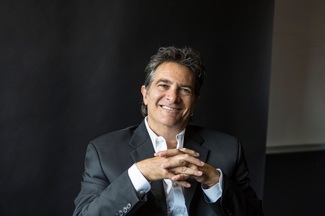
While at the world-famous school of music, artists meet other like-minded people with a driving passion to express themselves through song. They also learn how to turn that passion into a career.
Among the leaders of the artist management muster at Berklee is Ralph Jaccodine.
Having started his own career as a performer, Jaccodine knows well the trials and tribulations (as well as the glory and the fun) involved in a musical life. As he understood the difficulties involved in making it as a performing musician, Jaccodine diversified his passions while in high school in Allentown, PA, promoting shows by the likes of Hall and Oates, Kiss, Rush, and Styx as a member of the city’s high school student government. He then went on to promote shows at the University of Notre Dame, including a concert by Bruce Springsteen.
“That experience brought me a complete fascination with the business of music ,” Jaccodine explains. “I was in a small town and suddenly these huge, shiny busses pull in and everybody in town comes out.”
And while the bands would “blow everybody away and then move on to the next town,” something stuck with Jaccodine that shaped his career and his life.
“To be able to meet the artists and see it all, I really caught the bug and found that I really had a lot of passion for the whole circus act,” he smiles.
In 1994, Jaccodine co-created Black Wolf Records with friend and fellow industry expert Mike Dreese, who had created the popular and enduring Newbury Comics record store. Ralph Jaccodine Management (www.ralphjaccodine.com) was born soon after as a company that, Jaccodine says, was “built on integrity and tenacity.” These dual qualities have helped Jaccodine steer his curated family of clients amidst the tidal waves of a tumultuous industry.
“The philosophy is indie and fiercely independent with global reach in mind for our artists,” explains Jaccodine, noting that his company also founded Black Wolf records with award-winning singer/songwriter Ellis Paul. “The goal is…building lasting careers, focusing on working hard and doing things the right way for the right reasons.”
As he was in Boston and working with many nationally-touring artists, Jaccodine was often invited to speak and present at Berklee.
“I was pretty familiar with the folks in the faculty and Berklee’s status in the music world,” Jaccodine explains. “I also really like talking to student(s) because I feel I have a lot to offer them because I have 25 years of hard-earned experience as a manager.”
The more Jaccodine got to know the school and its faculty and students, the more he wanted to be a part of it.
“Years ago, I asked my management client Livingston Taylor why he was so excited to be teaching at Berklee,” Jaccodine recalls. “He said it was because he was among the best, most talented faculty and students in the country. That stuck with me! “
And while he admits that he was initially reticent to share his wisdoms with the students, Jaccodine says the he now relishes the opportunity.
“When I first started to talk to students, I was very nervous because I did not feel I was an authority figure on the business of music,” he recalls. “But now that I have been managing artists for so long, I feel confident that I am the expert on one thing, my career and my years of experience and the lessons I have learned from the trenches of the music industry.”
As he lives what he teaches, Jaccodine has been able to bring a rare, real world perspective to his classes and his students. “Because it is my day job, I have to be up to date and so I can bring that updated information and perspective to the students,” he reasons. “It is a really good feeling to be able to help them!”
At Berklee (where he won the Dean’s Award for Innovation and Service in 2015 ), Jaccodine also wears multiple hats, serving as an Assistant Professor in the department of Music Business/Management, co-managing the Berklee Music Law & Management Club, and also developing a series of professional development seminars with the Boston Managers Group, which he started 20 years ago with ex-Aerosmith manager Tim Collins.
“The club brings speakers in for the students and the community-at-large,” Jaccodine explains, listing such other austere speakers as Don Law of Live Nation, Panos Panay of SonicBids, Derek Sivers of CD Baby, and Berklee President Roger Brown and also mentioning a recent seminar with Rock and Roll Hall of Famer John Oates. “I am trying to bring a lot of energy and great talent to Berklee.”
Jaccodine has also been able to gain a great deal from his time at the school as well. Among his Berklee-bred clients are Shun Ng and Rebecca Loebe (see January, 2015 issue), and long-time friend Taylor. “I also mentor many of my students and others at the school,” Jaccodine says.
In his role at Berklee, Jaccodine is able to support and influence many young artists and future managers. When asked who influenced and inspired him, Jaccodine again mentions Collins and Dreese.
“In 1992, I came to Mike ranting and raving about Ellis Paul, and how great this guy’s music was. He quickly brought me down to earth saying those two words that have haunted me ever since- ‘Nobody Cares!’”
While Dreese’s response drove home the hard reality that, for the most part, music is seen as disposable, it also encouraged Jaccodine to work even harder to make people care about the songs and songwriters who mattered to him.
“Mike’s challenge to me back…was ‘How do I make people care about the music I care about?’” Jaccodine explains. “I have made a career out of spreading…the music of other people I care about.”
In fact, Jaccodine takes Dreese’s words so to hear that he continues to see his role not just as manager, but also as proselytizer.
“Personal management has to be a holy crusade or nothing at all,” Jaccodine observes. “You have to have confidence that people will care. Spreading my artist’s music is how I feed my family, but just as important… it is how I feed my soul.”
In an effort to repay his mentors and to help them support each other and other colleagues, Jaccodine has also organized a manager’s roundtable, of which Collins and Dreese are integral parts. In fact, Jaccodine recalls, Collins was there from the beginning.
“I had a few months of calling myself a manager under my belt when I called Tim,” Jaccodine recalls. “Tim was on top of the food chain for managers and I just wanted to meet him, touch his garment and hope that something would rub off on me.”
After what turned out to be an extensive conversation, in which Jaccodine was able to share his knowledge of the MA music scene with the eminent manager, Collins offered to reciprocate.
“I asked him to help me form a ‘bunch of managers’ so we can help each other out,” Jaccodine explains.
Thus was the Boston Manager’s Group born!
“As a manager,” Jaccodine suggests, “I am supposed to know how to guide a career without question, the artist places their trust in my guidance. I need to be an expert.”
While Jaccodine says that the Group helps him and other managers find the answers and garner the support they need to help their clients and to hopefully help strengthen and grow the music scene and the industry at large, he still feels that his main role is as an educator.
“I feel like I have found my calling in teaching,” Jaccodine says."

